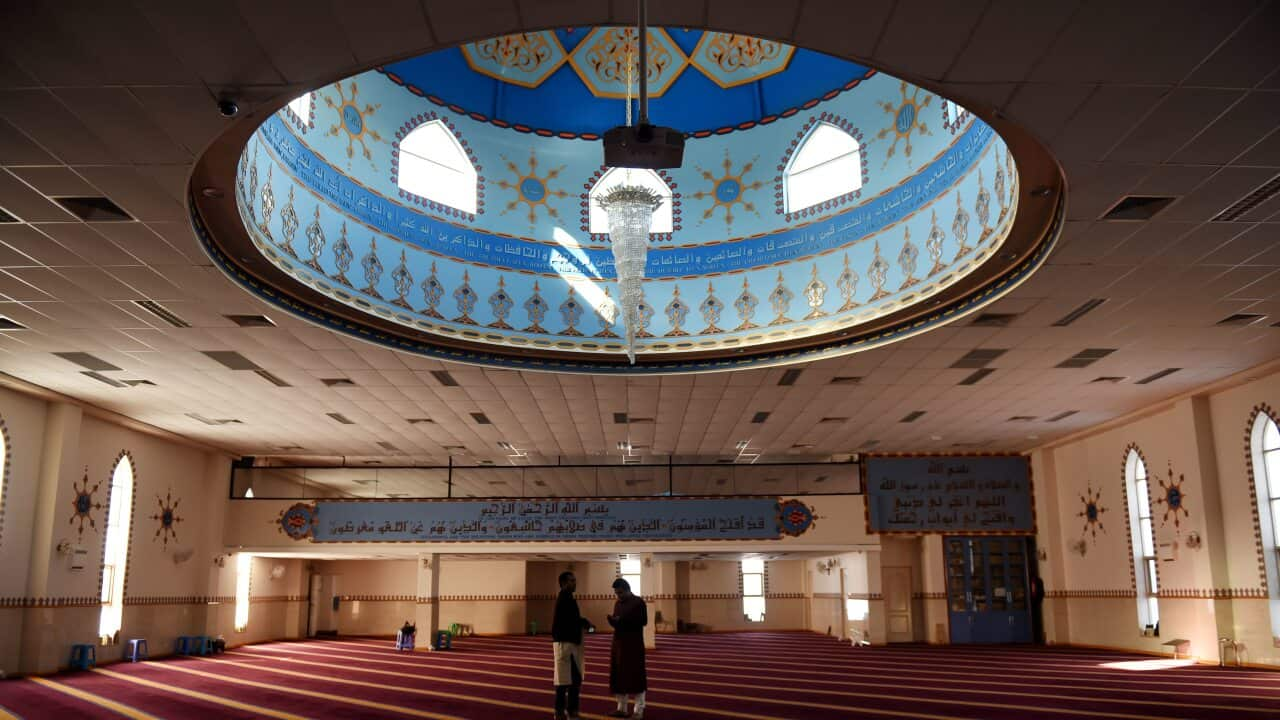When Israel and Jordan closed their borders as part of efforts to contain the spread of coronavirus, Sydney man Ali Sedda found himself stuck in the West Bank and in need of consular assistance.
As access was blocked via the way he came through Jordan, his only option was to cross into Israel and catch a flight from Tel Aviv’s Ben Gurion Airport, a route he says was “Impossible” given the circumstances.
Palestinian passport holders have to request to obtain a pass to enter Israel pending approval.
The predicament he found himself in was almost unthinkable when he set off from Sydney on February 25.
He flew into the Jordanian capital of Amman before crossing the King Hussein Bridge into the West Bank two days later.
"There were warnings about the coronavirus from Australia, Palestine and Jordan, but I did not realise how dangerous they were and did not expect that the borders in these countries would end up closing,” he told SBS Arabic24.
After settling in his home village of Jit, near the West Bank town of Nablus, the Israeli government announced on March 10 that it would close the bridge crossing linking the West Bank and Jordan. On the same day, Jordan announced the closure of all crossings with Israel and the Palestinian territories, as part of wider anti-coronavirus restrictions.
On the same day, Jordan announced the closure of all crossings with Israel and the Palestinian territories, as part of wider anti-coronavirus restrictions.

The West Bank is a landlocked territory near the Mediterranean coast of Western Asia. Source: Supplied
With both announcements and travel out of the West Bank only permitted for Jordanian citizens and other exceptional cases, he found himself trapped.
He said it was his decision to enter Jordan with his Palestinian passport, instead of his Australian passport, which prohibited his exit from the West Bank.
With the exception of the citizens of Jerusalem, Palestinians in the West Bank and Gaza Strip use the Palestinian passport in accordance with the Palestinian Autonomy Agreement signed in Washington in 1993. Jordan is considered the access point to the West Bank for holders of Palestinian passports living abroad, while Egypt is seen as the similar for Palestinians wanting to visit the Gaza Strip.
Jordan is considered the access point to the West Bank for holders of Palestinian passports living abroad, while Egypt is seen as the similar for Palestinians wanting to visit the Gaza Strip.

Ali Sedda (right) in the West Bank with a relative. Source: Supplied
The only way out for Mr Sedda was to board a plane from Ben Gurion Airport in Tel Aviv. However, on his own, he was unable to obtain the necessary permit to cross into Israel.
"When they closed the borders, I began to feel a deterioration in my health and mental well-being,” he said.
“My high blood pressure did not make it easier. I sleep wearing a nasal breathing device, I slept at home alone, and I started to worry so much. [I asked] what if I cut myself from oxygen at night and died here alone away from my family?"
Mr Sedda initially reached out to the Palestinian authorities for assistance, but he was advised to contact the Australian embassy.
His daughter, Malak, got in contact with the Australian embassy in Tel Aviv on March 24 and explained her father’s situation, which prompted the embassy to reach out to Mr Sedda to obtain more information and determine his location. On April 3, the embassy called again to advise that he would be allowed to cross into Israel and leave via Ben Gurion Airport, on the condition that he booked a flight back to Australia.
On April 3, the embassy called again to advise that he would be allowed to cross into Israel and leave via Ben Gurion Airport, on the condition that he booked a flight back to Australia.

Ali Sedda's Family Source: Supplied
Indeed, Malak booked a plane ticket for her father. But Mr Sedda said that before he intended to leave, he was advised that he would be prevented from entering Israel.
"I sent a picture of my ticket to the Australian embassy via WhatsApp, but I was surprised by a response telling me that my request to cross to Israel was refused." Malak said: "After we learned from the Australian embassy about the refusal, I sent five emails to Australia, Israel and Palestine pleading for help and understanding. I made several calls to explain to them the situation and provide the flight and reservation details to prove that he will cross to the airport only to come back to Australia."
Malak said: "After we learned from the Australian embassy about the refusal, I sent five emails to Australia, Israel and Palestine pleading for help and understanding. I made several calls to explain to them the situation and provide the flight and reservation details to prove that he will cross to the airport only to come back to Australia."

Ali Sedda on the plane out of Israel. Source: Supplied
On the day he was due to travel, an official at the Australian Embassy called Mr Sedda to tell him that Israel agreed again for him to cross and that the embassy would send a car to take him to the airport directly.
"The Australian embassy provided me with a huge amount of help and support despite the complexity of my situation. I would like to thank the Australian consul with all my heart and Mrs Diane who accompanied me from my house in the village to Ben Gurion Airport and until we crossed all borders and barriers.
"When we arrived at the airport, she told me I will wait for you to cross the immigration department, and indeed when I passed the long immigration interrogation, I called and told her that I had crossed and would sit to wait for the plane.”
Following a trip that lasted about three days, Mr Sedda arrived in San Francisco airport and then took an internal flight to New York, and from there he boarded his flight to Australia.
He arrived in Sydney at 7am on April 9 and was taken into quarantine at a hotel located in Sydney’s CBD.
"I am happy to be in quarantine, although I am sure I do not have coronavirus, I must do everything I can to protect my family and the Australian community, the least I can do, this is my duty.
"The Australian embassy made a great effort to help me and bring me back into the arms of my family. Even if this was the government's duty to any Australian stuck abroad, for me it was a great favour and I am forever grateful to them and everyone who helped me."





